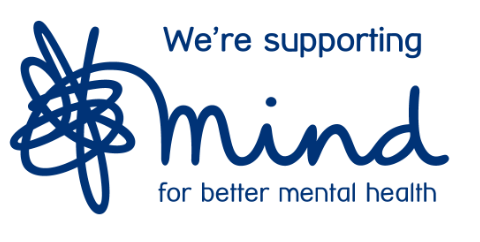Social Media and Mental Health
This week’s guest blogger is Client Manager Sam Cutbush who has shared a personal blog he has written on the relationship between social media and mental health.
We live in an age where mental health has never been taken more seriously. The tragic deaths of much loved celebrities like film director Tony Scott, football legend Gary Speed and comic genius Robin Williams have shone a bright light on the illnesses that drove these people to take their own lives.
We also live in a time where social media has become the gateway to everything. Be it information, communication, entertainment and crucially, support and awareness of mental health. The passing of Robin Williams in particular made millions of people ask: “Why? How could a man who brought so much joy to so many do such a thing?”. Social media’s answer was numerous memes and quotes aiming to explain that Williams wanted to make the world smile because he himself was so very sad, and wouldn’t wish that sadness on anybody else.

Arguably the biggest social media site, Facebook, has a great many detractors who criticise everything from Facebook’s supposed eavesdropping on our lives in order to spam us with targeted advertising, to the ease with which controversial and often disturbing content can be shared around the world.
On the flip side, keeping in touch with friends and family has never been easier, not to mention those in other cities or countries. Facebook can also be an incredibly effective marketing tool for businesses of any size, allowing them to connect with customers who want exactly what they are selling. As the saying goes, one man’s trash is another man’s treasure.
So what does social media have on mental health?
I’ve had my share of mental health issues, and have occasionally communicated them on social media platforms. Usually I would reach out to the wider world when I was in a good place to talk about getting to that good place after a period of difficulty.
My positive mind-set at that time allowed me to tell those in a similar boat they are not alone, that dark days can pass as quickly as they come and crucially, that I and many others are here for them. Reach out to me, talk to me, vent to me, and feel a little better as a result.
These occasional posts always get positive reactions from a number of people, and the words of kindness and support in the comments are certainly a great comfort to me. But the sad truth is, when someone is in that dark place, the one thing they will really struggle to do is reach out to others.
Your mind can often think that a cry for help will be brushed off by those who hear it, while in reality, those who hear said cry are far more likely to rush to your aid. A source of hope to me is that those I care about and confide in look out for me, and if they see a sign that something may not be right, they ask, they take the time to talk, and all of a sudden progress begins to be made. Having someone looking out for you is completely transformative in those situations.
Trends
Another thing that social media really goes to town on is trends. When something is flavour of the month, going viral and being spoken about by the world, it is all over our screens. From football coming home to a horrendous cat documentary, when a phenomenon sweeps us up, social media keeps us swept up. And that worries me. We scroll through our feeds at a rapid pace, stopping when something catches our eye, we like it, maybe share it, and then back to scrolling we go.
An uninspiring, generic quote can look a lot like a reminder to look out for our friends and loved ones’ mental health, and we can just as easily let profound content pass us by as any political opinion, piece of comedy or topless photo of Jason Momoa. How soon before heartfelt posts about depression, anxiety and other mental illnesses disappear off-screen as quickly as our thumbs will allow? For every post that lets us know we are not alone, there are hundreds, if not thousands of items we don’t need to see in which that post may get lost.

It is easy to champion the battle against mental illness online, but it could also become very easy to get desensitised to that battle if we are not careful. In writing this blog contribution, the irony dawns on me that this very piece of text is just more of the same content we’ve seen before. I just hope that the sheer volume of support out there is rammed home by social media, rather than consigned to the past by absent-minded thumbs.
It’s really important to check in on our friends and family, and social media continues to provide a channel of communication to those who might otherwise be isolated.
There are also a number of places online offering 24 hour support for men and women of all ages, like Mind, SANE, CALM and YoungMinds.
Tags: awareness, Mental Health, social media, support

